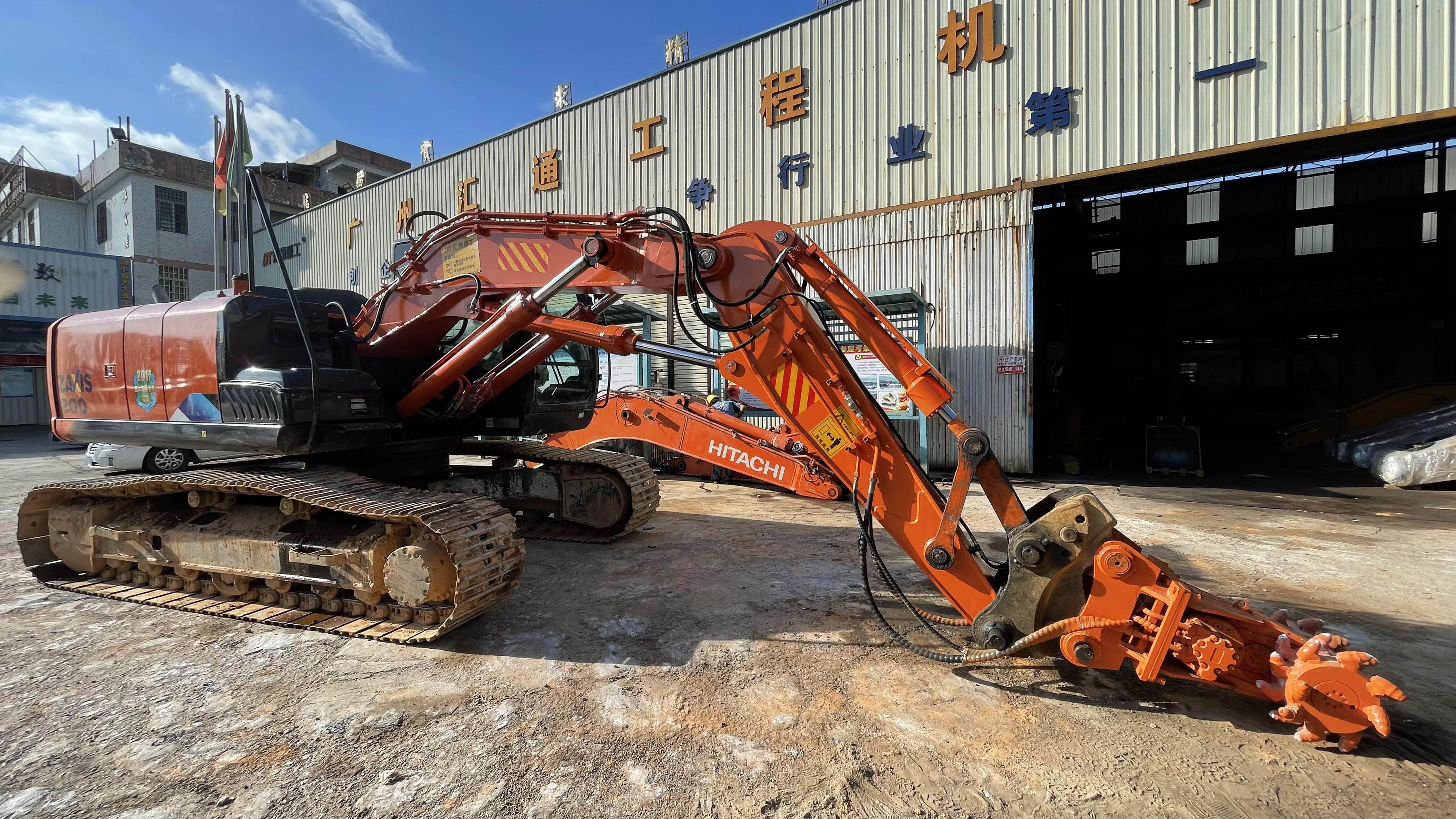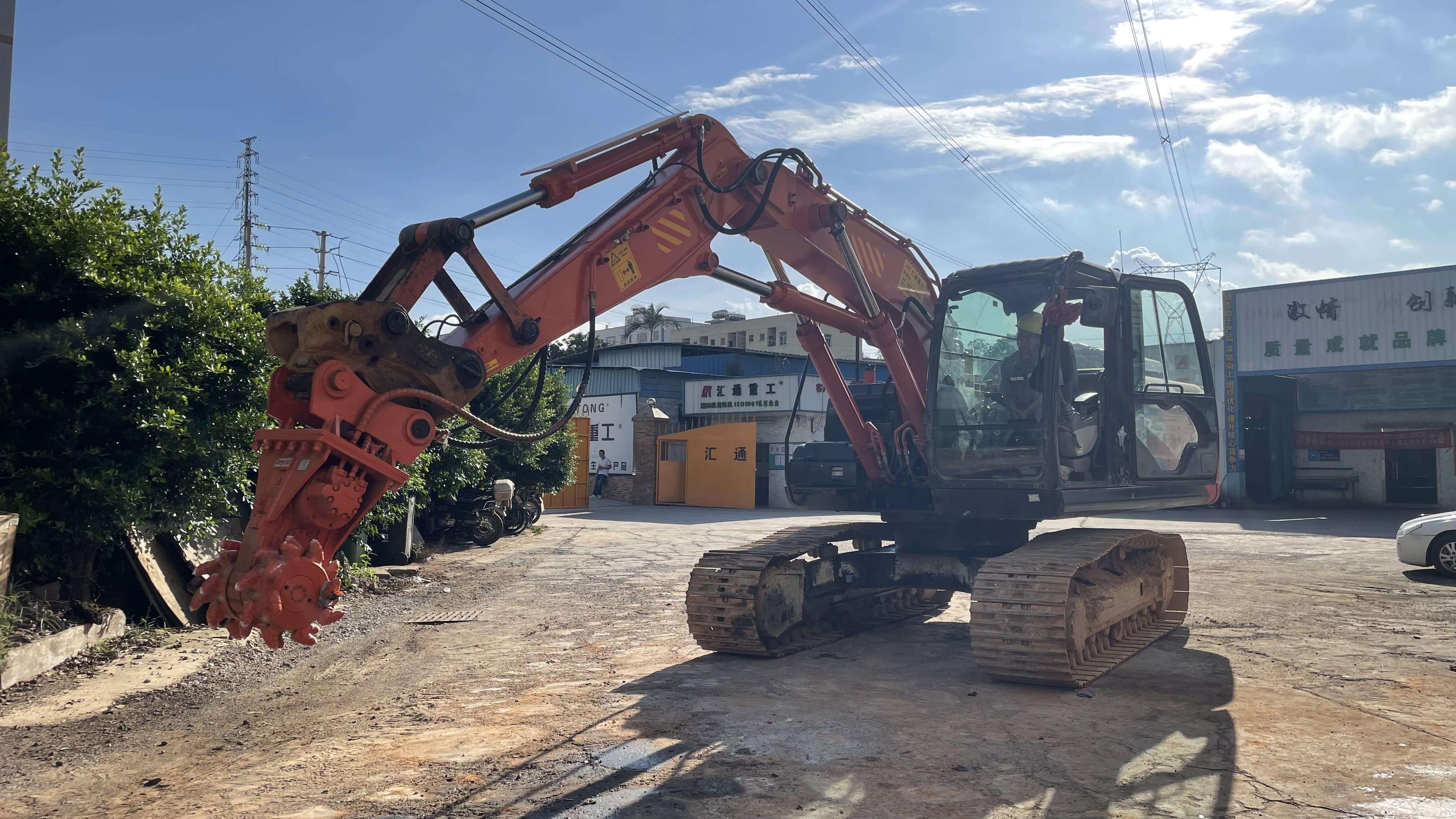 HuiTong
HuiTong  2025-06-13
2025-06-13
In the complex and varied field of construction and mining, choosing the right equipment for tunneling projects is crucial to ensuring efficiency, safety, and cost-effectiveness. Excavator tunnel arms, designed specifically for the challenges of tunnel construction, offer a range of advantages over other equipment types. This article explores these benefits across various engineering projects, comparing them with traditional excavation methods to underline the conditions under which they excel.

Precision and Adaptability
Excavator tunnel arms are renowned for their precision and adaptability in narrow and confined spaces. Unlike larger, less maneuverable equipment, these specialized excavators can be equipped with a variety of attachments (e.g., breakers, cutters, crushers) making them incredibly versatile for different types of soil and rock conditions. For instance, in the construction of the La Linea Tunnel in Colombia, excavator tunnel arms were preferred for their ability to navigate the challenging geological conditions, where a mix of hard rock and soft soil demanded adaptable and precise excavation methods.
When it comes to smaller-scale projects or those with limited access, excavator tunnel arms present a more cost-effective solution than larger tunnel boring machines (TBMs) or roadheaders. Their lower operational and maintenance costs, combined with the reduced need for large-scale mobilization, make them a budget-friendly option for projects like urban utility installations. The use of excavator tunnel arms in the Bangkok MRT Blue Line extension serves as a prime example, where their deployment in urban environments minimized disruptions and avoided the high costs associated with larger tunneling machines.
In projects where time is of the essence, the speed and efficiency of excavator tunnel arms can significantly reduce tunneling timeframes. Their ability to quickly adapt to different excavation tasks without the need for extensive setup or changeover times makes them ideal for projects with tight schedules. The rapid construction of emergency access tunnels for the Fukushima Daiichi Nuclear Power Plant in Japan highlights how excavator tunnel arms expedited the process, providing swift access for repair and recovery operations.
Excavator tunnel arms also offer environmental advantages, producing less noise and vibration compared to larger, more invasive equipment. This makes them particularly suitable for projects in sensitive urban or natural areas, where minimizing environmental impact is a priority. The construction of pedestrian underpasses in the highly urbanized areas of Singapore, utilizing excavator tunnel arms, showcases their ability to operate within strict environmental constraints.
While excavator tunnel arms have distinct advantages, it's important to compare them with traditional equipment to fully appreciate their value in specific contexts.
TBMs, capable of excavating large diameter tunnels over long distances, are unparalleled in projects requiring uniform tunnel cross-sections, such as subway systems. However, their high upfront cost, lengthy setup time, and lack of flexibility make excavator tunnel arms a more suitable choice for smaller or more complex projects.
Roadheaders offer a balance between flexibility and power, ideal for medium-sized tunneling projects. However, their performance can be limited in extremely hard rock or highly variable conditions, where the adaptability of excavator tunnel arms with specialized attachments can provide a significant advantage.

Traditional excavators, though versatile, lack the specialized design of tunnel arms for underground construction. Their larger size and reduced maneuverability in confined spaces limit their effectiveness in tunneling applications, underscoring the importance of using the right equipment for the job.
The comparison of excavator tunnel arms with other tunneling equipment across various engineering projects underscores their unique combination of precision, adaptability, cost-effectiveness, and environmental friendliness. While larger and more powerful machines like TBMs and roadheaders play an indispensable role in specific project types, the flexibility and efficiency of excavator tunnel arms make them an invaluable tool in the engineer's arsenal for a wide range of tunneling challenges. Choosing the appropriate equipment requires a careful analysis of project specifics, including scale, budget, environmental considerations, and geological conditions, ensuring that engineering projects are not only successful but also sustainable and cost-efficient.